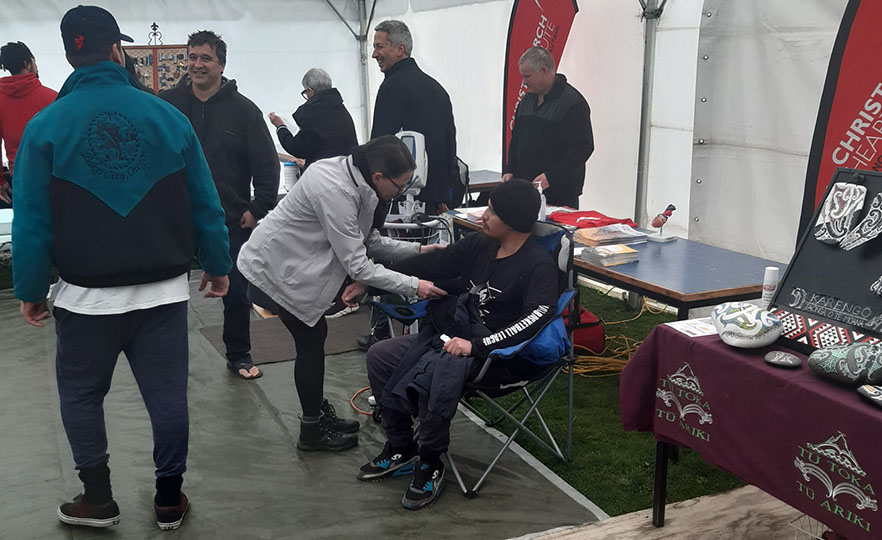
The Christchurch Heart Institute (CHI), Rangahau Manawa o Ōtautahi, is working alongside the Māori community to raise awareness of heart health and to implement research to support the diagnosis and treatment of cardiovascular disease among Māori.
Māori elders are embracing this move for their communities, in line with their Kaupapa Māori. Kaupapa means to share the vision and purpose of Māori communities. Most importantly it includes the aspirations of the community. The CHI is aligned with this overall ethos, intending to support the present and future health of the community by encouraging informative discussion on heart-related health topics and partnering in heart research studies that support the long-term heart health of Māori.
At a Matakariki Whānau day on 26 June, held at Rehua Marae in Christchurch, members of the CHI team provided blood pressure, body composition measurements and heart health education to anyone interested in finding out their base-line cardiovascular health.
A lead researcher at the CHI, Professor Chris Charles, who is among those at the Institute working towards Māori health advancement, commented that the CHI recognises cardiovascular disease is a significant health condition and leading cause of mortality for Māori, as documented in Ministry of Health data.
“Data shows wide disparities in the number of deaths from heart disease between Māori and non-Māori. Twice as many Māori die from heart disease compared with non-Māori. Cardiovascular events occur at an earlier age within the Māori population, with 45 per cent of deaths due to heart attack occurring before the age of 65 years, compared with 11 per cent for non-Māori. The consequent physical, emotional, economic and social burden on a personal, whānau and societal level is much greater for Māori,” Chris said.
One of the team, Professor Richard Troughton, said “It was a great event to be involved in and we felt very welcome. It was also very encouraging to see the awareness and interest in heart health.”
Dr Karaitiana Taiuru, Kairangahau Māori (Health Researcher) at the CHI, said that raising awareness of heart health among Māori is of paramount importance.
“The over representation of Māori who die or suffer from heart related diseases is truly alarming. Māori women fare better than Māori men but still have higher incidence of heart disease compared to non-Māori women. Māori men, on the other hand, are at very high risk. Recently, in Māori media, we saw prominent Māori leader Matthew Tukaki speak of his own heart attack, which is a good reminder to men in their 40's, in particular, that we need to consider our heart health and engage with health providers. For many Māori men there are social and cultural issues that prevent us.”
According to Karaitiana, the CHI's participation at the Matariki event offered an opportunity to remove those barriers and for a cross section of Māori who do not live in their tribal areas to see what is being offered and have the opportunity to engage with the team.
The Māori New Year is marked by Matariki, when the Pleiades constellation appears in June each year. It is a time for families and communities to gather in celebration. It is also a time for contemplating change, whether personal, for the children, or for the community.
“Matariki is also about rest and goal setting,” Karaitiana said, “I hope for some of the whānau they will set healthier goals using our free recipes and information sheets for themselves and our future generations as an act of Tino Rangatiratanga (self-determination). It is also a time for us to remember the Ngāi Tahu whakatauakī "Mō tātou, ā, mō kā uri a muri ake nei" – For us and our children after us.”